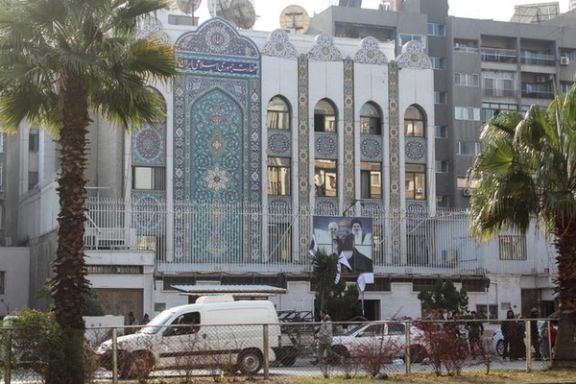Hardline media admits losses after Assad’s fall in Syria

The fall of Bashar al-Assad’s government has prompted rare admissions of setbacks from Iran’s hardline media, with an outlet linked to the IRGC acknowledging losses for Iran's military allies across the region.
“The blows inflicted on the resistance movement should not be denied, nor should false remedies be applied to conceal the pain,” IRGC-affiliated Javan newspaper said Tuesday.
Specifically, Iran's largest militia, Hezbollah in Lebanon, considered a terrorist organization by countries including the US and UK, has seen huge blows since September as Israel ramped up airstrikes and targeted killings. It has seen massive losses to its military infrastructure and leadership.
Iran's Gaza-based ally, Hamas, also considered a terrorist organization by countries such as the US and UK, has also suffered huge blows since the retaliatory offensive launched by Israel in the wake of the group's invasion of Israel on October 7 last year.
The IRGC-linked paper focused on the implications of Assad’s fall for Iran’s proxy groups, known as the 'axis of resistance'. Syria, under the rule of Bashar Al-Assad, has long been a key component for these groups.
The paper acknowledged that Syria’s strategic location and logistical role made it a vital connection point for Iran and its allies, including Hezbollah. "Syria was both a cornerstone of the resistance axis and a vital link connecting Iran to Hezbollah in Lebanon," Javan wrote, warning that its loss disrupts coordination and weakens the operational capacity of the resistance axis, Syria a key smuggling route to Lebanon for Tehran.
The paper also addressed Israel's targeted assassinations, which saw top levels of the group killed including long-time leader Hassan Nasrallah, described as a significant blow, both symbolically and strategically.
Despite the admissions, Javan argued that the ‘resistance axis’ is built to endure such challenges. "The resistance is not overly reliant on individuals or states," the article said, adding that its structure prevents the loss of leaders or allies from crippling the movement entirely.
The article concluded with drawing on the Houthis in Yemen as an example of the “continued path of resistance” and comparing the ‘axis of resistance’ to a river that "always finds its way to the sea despite obstacles."
Kayhan ties Assad’s fall to Western compromise and internal missteps
The hardline daily Kayhan newspaper, closely aligned with Supreme Leader Ali Khamenei’s office, framed Assad’s fall as a cautionary tale on the dangers of compromising with Western adversaries, while justifying Iran’s expenditures in support of his government in Syria.
Kayhan argued that Iran’s involvement in Syria was essential, writing: “Our costs in Syria were never wasted. The threat of ISIS near Iran’s borders justified these expenses, which have brought security to the nation. Without this investment, Iran’s current situation could have been unpredictable.”
The paper attributed Assad’s fall to internal factors, including a lack of motivation within the Syrian army, intelligence compromises among officials, and economic mismanagement. “The Syrian government lacked the moral readiness to continue resisting, and Iran could not shoulder these costs alone,” Kayhan said.
In an editorial criticizing President Masoud Pezeshkian’s administration, Kayhan linked Syria’s crisis to leniency towards Western powers. “Compromising with the enemy brings nothing but losses,” it said. “The pro-Western approach weakens internal power structures and paves the way for the enemy. Syria’s recent collapse demonstrates the failure of such strategies.”
The paper also accused the media of discrediting Assad among Syrians and argued that infiltration projects and economic neglect contributed to his fall. Kayhan concluded by warning against compromise with the West and asserting: “Assad's failure and the fall of his government was turning away from the resistance front and leaning towards the West and Arab countries. Once again, it has been proven that the cost of compromise outweighs the cost of resistance.”
As Khamenei prepares his address on Wednesday, experts argue his speech is likely to reinforce this narrative, underscoring Iran's defiance in the face of adversity and its determination to sustain the ‘resistance axis’ despite the challenges.